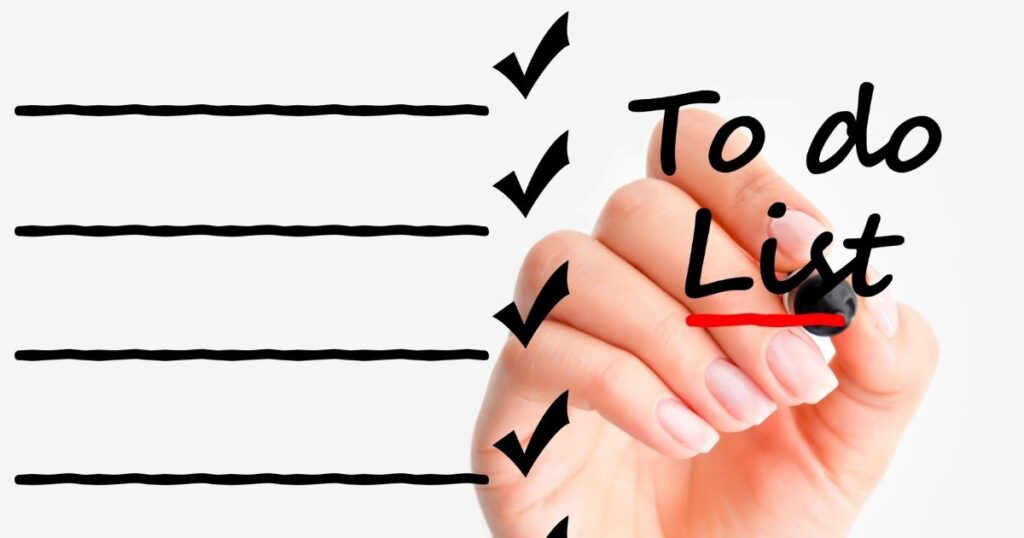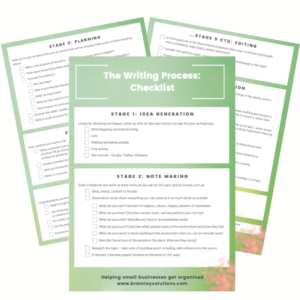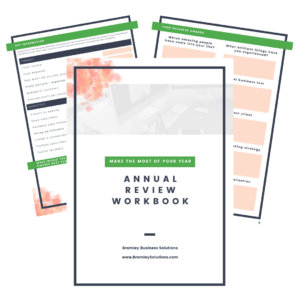Are you looking after your brain? Did you know that you will make your brain happy by making a to do list? Why is this?
Your mind is for having ideas, not holding them
Getting Things Done, David Allen 2001
This quote from the master of productivity, David Allen, says it all. Our brain is not designed to remember the hundreds & thousands of thoughts and to dos that we have each day.
For one thing, we are guaranteed to forget things due to the nature of our short-term memories. The average person’s short-term memory can only hold 7 pieces of information for about 30 seconds. That is why you keep forgetting things! It is not disorganisation, it is because we are trying to remember far too many things.
Modern life and work mean that most of us are trying to remember a vast amount of information, and pushing our brain to its limits. Rather than getting the very best from the magical processing tool that is our brain, we are compromising it by asking it to manage more than it is designed for.

David Allen explains it like this:
The short-term-memory part of your mind—the part that tends to hold all of the incomplete, undecided, and unorganized “stuff”—functions much like RAM on a personal computer. Your conscious mind, like the computer screen, is a focusing tool, not a storage place. You can think about only two or three things at once. But the incomplete items are still being stored in the short-term-memory space. And as with RAM, there’s limited capacity; there’s only so much “stuff” you can store in there and still have that part of your brain function at a high level. Most people walk around with their RAM bursting at the seams. They’re constantly distracted, their focus disturbed by their own internal mental overload.
Getting Things Done, David Allen 2001
So not only are we overloading our brains with too many things to remember, we are then compromising their ability to process information.
This in turn then affects our focus and productivity.
How often have you been in mid-flow of creating something for work, and then interrupted by remembering that you need to call Susan?
When this happens repeatedly throughout the day you’re just not going to be able to do your best work. Your focus is broken, and you need to take valuable time to get back on track.
Or the worst-case scenario is you don’t remember to call Susan at all. Is this you? Are you constantly fighting fires and feeling chaotic? It is a miserable way to work and maximises stress and all the negative physical effects that come from that.
There is an answer, and yes, you’ve guessed it, it is to make a to do list.

Write everything down
Care for your brain and write down everything you need to do. Just getting it out of your head makes it easier to concentrate, enables you to make choices on what is most important, and plan when you’re going to do things.
In fact, every time you look at a list, it reinforces the information in your short-term memory, making it much less likely that you will forget an appointment or commitment.
Keeping a to do list will allow you to effortlessly keep track of everything that you need to do.
There are lots of different ways of capturing your to dos.
I love stationery, and enjoy the thrill of a new notebook, however, I recommend a digital system for to do lists if you can manage it. My favourite is Trello you can find out more about how I use it here: 10 reasons digital to do lists are brilliant and how to start now.
Whatever you choose to use as your task management the system must be reliable, and you must use it reliably. Have your notebook open beside you, or the app open on your phone or desktop. Every time a to do pops into your head or lands in an email, add it on your to do list, and then move on.
If you don’t, you won’t trust it and your brain will keep trying to remember things – not giving you the amazing benefits you deserve. That is why your brain will thank you for making a to do list.
You can find out more about how you can maximise your time and create the calm business that you deserve in my course The Organised Coach Method.
Read my other recent blog posts:





